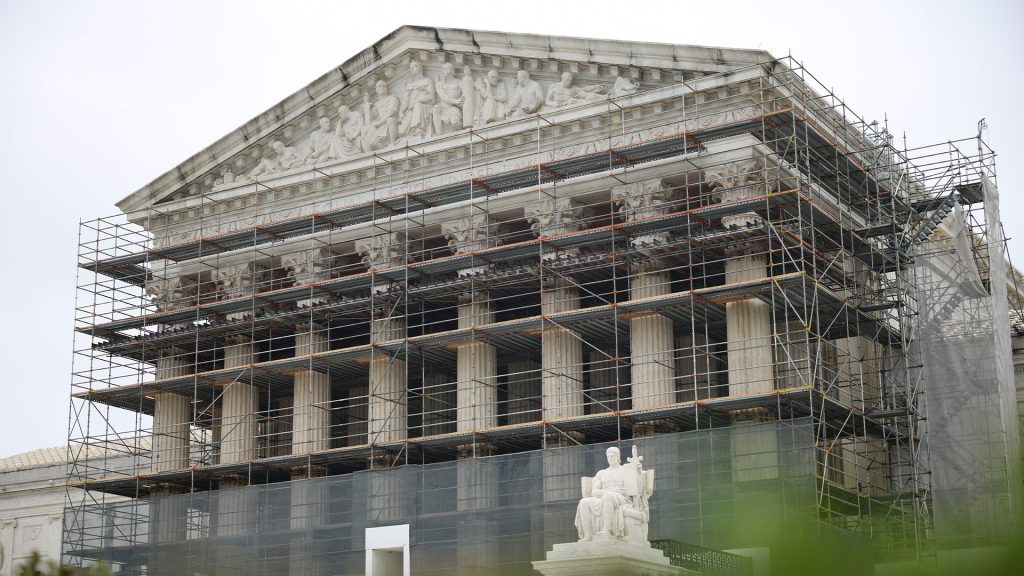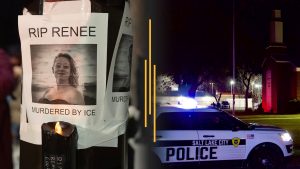SCOTUS: 532,000 migrants on Biden parole program can be deported

The U.S. Supreme Court has ruled that the Trump administration can revoke protections for more than half a million migrants living in the United States under a Biden-era humanitarian parole program while the case plays out in lower courts. The 532,000 migrants currently covered by the program are from Cuba, Haiti, Nicaragua and Venezuela. They were legally permitted to live and work in the U.S. for up to two years while their asylum claims moved through the courts.
Now, the high court has cleared the way for the Trump administration to restart deportations for this group. In a separate decision earlier in May, the justices also allowed the administration to revoke Temporary Protected Status for an additional 350,000 Venezuelan migrants.
Unbiased. Straight Facts.TM
The U.S. Supreme Court has ruled that around 532,000 migrants currently covered by a Biden-era humanitarian program can be deported, joining a similar ruling allowing more than 350,000 Venezuelans to be deported.

Combined, the two rulings give the Trump administration the legal authority to begin deporting nearly 1 million migrants previously covered by humanitarian programs.
Legal battle centers on parole program termination
The legal fight stems from an executive order President Donald Trump signed on the first day of his second term, directing the Department of Homeland Security to terminate the parole program.
DHS has defended the move, describing the program as “an abuse” of the system.
“They were bringing refugees in, and I was asking how they were vetted, how we were working with their home countries to find out who they really were, what their intentions were, and received no information,” DHS Secretary Kristi Noem said during her confirmation hearing.
Requirements for parole eligibility and alleged fraud
According to the DHS guidelines for the parole program, applicants had to meet several conditions at the time:
- Pass a vetting process
- Have a domestic sponsor
- Not have attempted to enter the U.S. illegally
Despite these requirements, an internal government review found numerous instances of fraud. An audit by Michael Mayhew, the head of the Immigration Records and Identity Services division at U.S. Citizenship and Immigration Services, along with a review by the House Judiciary Committee, uncovered allegations of abuse, including:
- Single home addresses appearing on dozens of applications
- Gang members and sex traffickers serving as sponsors for migrant women
- More than 80,000 noncitizens signing up to sponsor parolees
- The use of deceased individuals in sponsor applications
Justice’s dissent warns of ‘needless human suffering’
In her dissent, Justice Ketanji Brown Jackson criticized the Supreme Court’s decision to allow hundreds of thousands of parolees to become deportable — despite their legal entry into the U.S. under humanitarian grounds.
“No one disputes that social and economic chaos will ensue if that many noncitizen parolees are suddenly and summarily remanded,” Justice Brown wrote.
She warned the decision could result in “dangers in their native countries,” “destructive family separation” and would “facilitate needless human suffering before the courts have reached a final judgment regarding the legal arguments at issue.”
Broader legal challenge still ongoing
The Supreme Court’s ruling is temporary, allowing the Trump administration to proceed with deportations while lower courts weigh the legal challenge to terminating protected status for those granted it under the Biden administration. There remains a possibility that the case could return to the Supreme Court for a final ruling.





